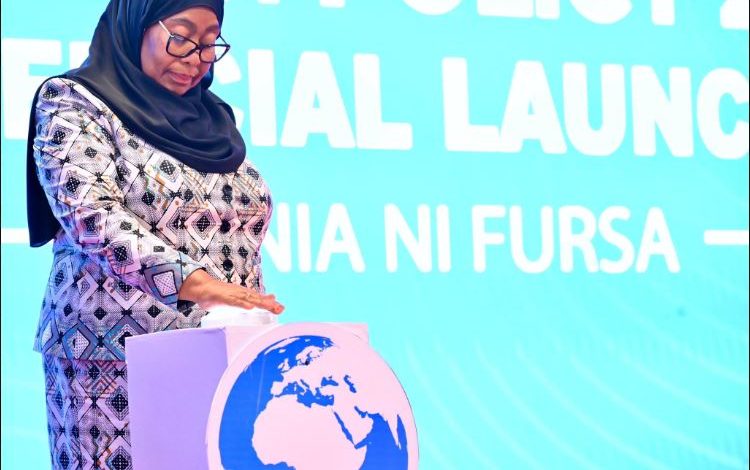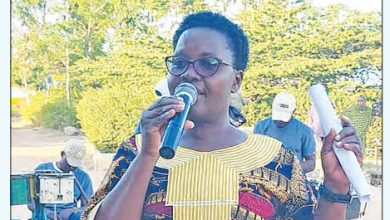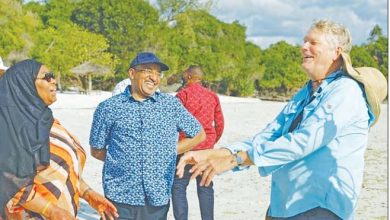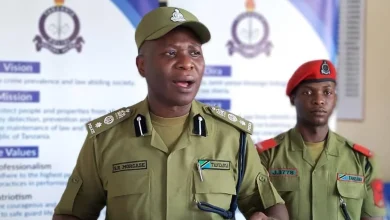A revitalised foreign policy for our time

“THE nature of time is like the ocean it ebbs and flows. A wise fish reads the winds and follows the tides, lest it be left stranded on the shore.” The president’s keynote address Monday 20th 2025.
These words are from President Samia Suluhu Hassan, quoting the late President Ali Hassan Mwinyi, during the revival of Tanzania’s foreign policy. That Monday evening, I was honoured to be invited on Tanzania Broadcasting Corporation to do a short analysis on the new revitalised foreign policy.
In my mind, I set so help me God, as diplomacy is surely one of the most important professions and there could be a possibility apart from the Tanzanian local viewers, the audience could be diplomats, whose actions may rest the fate of nations.
And for we Tanzanians our ambassadors could check upon analytical discussions on the international system, in order to perceive and interpret key developments on the analysis and to advise apropriate courses of action and policy, in order to negotiate proper solutions to our country’s crucial interests. So, this article is part of my opinion, a breakdown of part of our large foreign policy.
The world’s geopolitical climate is changing rapidly and Tanzania’s foreign policy has traveled a long, transformative path over the past 60 years. It has faithfully served the purposes of a developing nation, having stood firm through the turbulence of the Cold War-navigating a bipolar world order shaped by the former Soviet Union and the United States.
During the era of African nationalism and the struggle against apartheid in South Africa, Tanzania not only pursued its own national interests, but also played a pivotal role in supporting other African nations in their quest for independence from colonial rule.
The country earned global respect for its principled stance and produced diplomats of remarkable caliber like the late Ambassador Augustine Mahiga and the venerable Salim Ahmed Salim.
These were not just figures at conferences, posed in front of flags for protocol photos; they were dynamic forces, shaping international relations with strategic intent and enduring substance.
A short history of Tanzania’s foreign policy guidance
For over half a century, Tanzania’s foreign policy was framed by critical documents: Circular Number 2 of 1964, the Arusha Declaration of 1967 and the New Foreign Policy (NFP) of 2001.
These were developed in response to significant global shifts beginning in the mid-1980s-economic reforms, political liberalisation and the accelerating pace of globalisation.
Additional influences included the transition to market-led economies and resistance to global protectionism, especially amid trade rivalries between Beijing and Washington.
President Samia’s revitalisation: A foreign policy for historic new missions
While President Samia Suluhu Hassan’s 2025 speech did not explicitly lay out a doctrinal change, it marked the beginning of a bold new chapter. Her vision reflects a realignment of Tanzania’s foreign engagement to suit the complexities of today’s multipolar world.
It is now incumbent upon us to actualise her visionto reenergise the 2001 foreign policy and transform it into a tool for Tanzania’s economic awakening.
Minister Kombo in his own words on revitalised foreign
Policy In the foreword of the newly revised foreign policy, Minister for Foreign Affairs and East African Cooperation, Ambassador Mahmoud Thabit Kombo, outlines ten strategic focus areas.
These include: economic diplomacy; the promotion of peace, security and political stability; the ratification and domestication of international treaties; effective participation in global institutions; the elevation of Kiswahili as a tool of diplomacy; and the mobilisation of international resources for national development.
Economic diplomacy as strategic recalibration
To understand Tanzania’s approach to economic diplomacy, one must examine Chapter 3, Item 3.1 of the revitalised policy. But why did President Samia choose such a rich metaphor-comparing time to the ocean tides? There are many interpretations, but one stands out: she is reminding policymakers that multipolarity is not bipolarity.
The bipolar world order born from the Yalta systemwhere the US and USSR represented opposing ideological poles of capitalism and socialism-is gone. That old system was rooted in ideological rigidity: liberalism versus Marxism.
Or as my father, Fabian M Igosha, once put it, “Communism versus imperialism.” During the Cold War, this bipolar structure persisted due to the parity in military and economic power between Washington and Moscow.
No other country, even within their spheres of influence, came close to matching their dominance. These superpowers were surrounded by strategic vassals, lesser powers whose security interests were tethered to those of the hegemony they aligned with.
But today, planetary influence is no longer rooted in ideology. The rise of China as a global industrial hub-and the world’s leading trading nation-was not built on ideological foundations, but on pragmatic, strategic economic reforms.
When one pole collapsed, the Cold War theatre dissolved and along with it the old “Third World” binary framework. Ideology no longer rallies large populations in opposition to market forces or globalisation. Instead, the contemporary world order is shaped by meritocratic systems, technological investment and interdependence.
China and India, once grouped among the SouthSouth coalition of “developing nations,” are now critical players in space exploration, AI, and global finance. Their rise affirms a key reality: multipolarity is not a theory it is the world we live in.
Diplomacy must serve national development
Tanzania operates over 60 diplomatic missions globallyincluding embassies, high commissions and consulates. These missions must now evolve into active hubs of trade and investment. We must deploy economic attachés who understand not just diplomacy, but the philosophical underpinnings of post-positivism and 21st-century international relations.
It is no longer enough to attend high-level meetings in Geneva, New York, or Beijing. Our ambassadors should be evaluated not by the number of photos they take with world leaders, but by how they create strategic education and business opportunities for Tanzanians.
And here, I’m not referring to scholarships offered by host countries true transformative knowledge must be sought intentionally, by Tanzanians, for Tanzanians.
Swahili as a tool of soft power
The policy’s emphasis on Kiswahili as a diplomatic tool is commendable, yet it is often contradicted by our own elite. Many officials proudly enrol their children in foreignlanguage schools, celebrate Western cultural experiences and flaunt cosmopolitanism while paying lip service to linguistic patriotism.
Upon retirement, some diplomats still prefer English Mass at church, or meet for brunches that feel more like episodes of Keeping Up with the Joneses than forums for development discourse.
If Kiswahili is to be taken seriously, then Swahili language centres must be established globally in Paris, London, Tokyo, Moscow, Washington, Johannesburg, Addis Ababa, Riyadh, Doha and beyond. And while global competitiveness demands fluency in English, French and Mandarin, it must never come at the cost of our own cultural identity.
The future belongs to those who can live their policies, not merely pronounce them. Association of Southeast Asian Nations (ASEAN), Brazil, Russia, India, China and South Africa (BRICS) and North Atlantic Treaty Organisation (NATO) were all forged through intentional education, not rhetoric. To stand among them, Tanzania must send its brightest minds to Harvard, MIT, Moscow University, JNU, Tokyo University, King’s College London and other institutions that shape the world.
Global leadership demands not just patriotism, but preparation.
Tanzania’s place on the Security Council:
In my Daily News article of December 16, 2024, I argued for Tanzania’s rightful pursuit of a permanent seat at the UN Security Council. We must not treat this aspiration as an idealistic dream. A civilisation is not respected for the colour of its people or the history of its struggle, but for the relevance of its voice among the global community.
A foreign posture for a new era
Tanzania is not asking for a seat at the global table merely to be seen. It is preparing to be heard in its own language, on its own terms and with a clarity of purpose forged from decades of principled diplomacy and emerging strategic clarity.
The revitalisation of our foreign policy is not just a doctrinal shift; it is a generational turning point. We stand at a moment where diplomacy must transcend decorum. This is no longer a time for protocol pictures and polite engagements. It is a time for pragmatic alliances, investment corridors and educational foresight. Let it be remembered that the geography of influence is not inherited it is constructed.
Tanzania’s arc, running between the 1st and 6th parallels of latitude, is more than a set of coordinates. It is a rising diplomatic horizon.
A corridor of shared futures with our neighbours and a launchpad for deeper engagement with the world. What we need now is not just a foreign policy, but a foreign posture principled, proactive and unapologetically Tanzanian. The winds have shifted. The tides are changing. As President Samia reminds us, time is like the ocean and only those who read the wind will ride the waves.
● The writer is an Advocate of the High Court and a columnist for international affairs and diplomacy at The Daily News Tanzania. E-mail: norvum728@gmail. com | Mobile: +255 747 130 688





